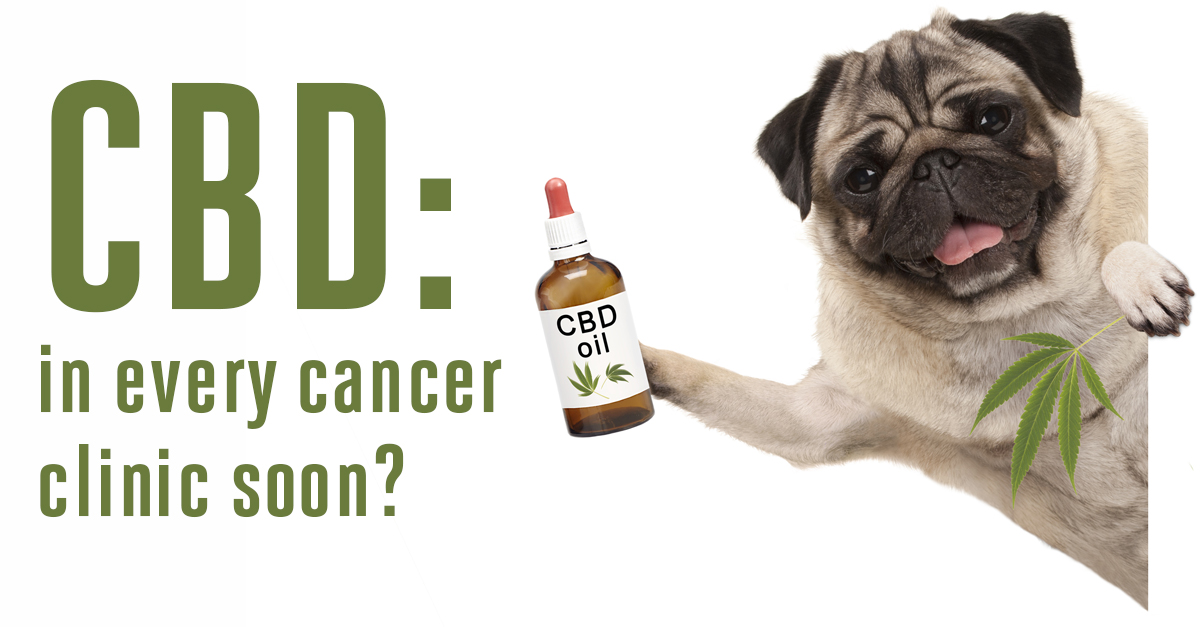If the treatment
of epilepsy put CBD (cannabidiol) oil on the map, cancer could put it
into the mainstream. In fact, some researchers are enthusing that it
could be in use in cancer clinics “almost immediately.”
CBD is an extract
from cannabis and hemp that has therapeutic qualities but doesn’t make
you high. That’s achieved by another component of the plant, THC
(tetrahydrocannabinol).
As those who read
the first part of our CBD letter from a few weeks back will know, CBD
has been proven to help heal fractures quicker, treat epileptic fits,
reduce pain and inflammation, and could even help with intractable
conditions such as Crohn’s disease and Alzheimer’s.
Despite the
difficulties in getting hold of sufficient supplies of CBD—only those
that contain 0.2 per cent THC are permitted to be sold—it’s become “a
Disneyland for pharmacologists,” said Francisco Guimaraes, a
pharmacologist at the University of Sao Paolo in Brazil.
And their
attention has started to focus on cancer, and especially the intractable
cancers to which medicine seems to have few answers.
Cancer
CBD is tripling
the survival rate for pancreatic cancer, which is considered virtually
untreatable. Chemotherapy achieves a five-year survival rate in just 7
per cent of patients—but when CBD is added, the rate trebles. Although
researchers from Queen Mary University in London have tested it only on
laboratory mice, a similar effect in humans could see CBD “in use in
cancer clinics almost immediately,” said lead researcher Marco Falasca. 1
It also seems to
super-charge the effectiveness of radiotherapy. Interestingly, both CBD
and THC components of cannabis were tested on brain cancer patients
while they were also being given radiotherapy—and the combination
‘drastically’ slowed tumour growth. In fact, the tumours started to
shrink, say researchers from St George’s at the University of London.
Conventional medicine has few answers to brain cancer, which has a
five-year survival rate of just 10 per cent—and so the discovery could
be a major breakthrough, especially for those with advanced brain
cancer. 2
CBD triggers cell
death (apoptosis) in breast cancer cells, researchers from the Beth
Israel Deaconess Medical Center discovered in laboratory tests on cancer
cell lines, 3 and it also stops lung cancer cells growing and metastasising (spreading), a separate study found. 4
It even stops the
growth of aggressive, and life-threatening, breast cancer, and seems to
be especially effective in cases of triple-negative breast cancers. It
appears to interrupt the cells’ signalling abilities, thus preventing
them from spreading. 5
CBD spray is an
effective pain-reliever for patients with advanced and end-stage cancer.
In one test on 43 cancer patients, researchers from a hospice in
Shropshire, UK discovered the spray reduced pain, and also helped the
patients’ insomnia and fatigue. 6
CBD also slows the
growth of colon cancer cells. Interestingly, the CBD didn’t affect
healthy cells, say researchers from the University of Aberdeen. It seems
to activate CB1 and CB2 receptors in our body and immune system that
help slow the spread of the cancer. 7
Other researchers have discovered that CBD helps with a range of psychiatric conditions:
Anxiety disorders
There’s ‘strong
evidence’ that CBD is an effective therapy for a range of mental health
issues, including anxiety disorders, panic disorders, social anxiety,
obsessive-compulsive disorder (OCD), and post-traumatic stress disorder.
However, the research has restricted itself to assessing CBD as a
short-term remedy, but there’s been very little research into its
long-term use for chronic problems. 8
Depression
CBD also has
anti-depressant qualities. A major study that involved around 12,000
participants has found that cannabis seems to be effective against
depression, anxiety and stress. Most studies have looked only at CBD
extracts, and so researchers from Washington State University wanted to
see what effect smoking the entire cannabis leaf—with varying levels of
CBD and THC—had on people. Not surprisingly, the researchers found that
the cannabis that was high in CBD and low in THC was optimal for
reducing depression. Taking two puffs was sufficient for reducing levels
of anxiety, ad 10 puffs produced the largest reduction in stress. Women
seemed to respond best, especially when it came to reducing levels of
anxiety. 9
Researchers who
took a look at research on laboratory animals found CBD on its own had a
similar positive effect, especially on anxiety and depression. 10
CBD can even
reverse some of the worst effects of THC. It can work on its own to
counter THC’s psychiatric effects but any variety that has a higher
ratio of CBD could also have fewer harmful effects, say researchers from
Indiana University. Adolescents who are smoking cannabis, with high THC
content, run a risk of suffering from behavioural problems later in
life if they take it for a long time. They are also more likely to have
psychiatric problems such as schizophrenia. The problem is that analysis
of cannabis seized by the US Drug Enforcement Agency has found that THC
levels have risen by 300 per cent and CBD declined by 60 per cent
between 1995 and 2014. In an experiment on laboratory mice, the
researchers fed them various levels of THC and CBD, and discovered that
those fed the most THC , with little or no CBD, suffered memory problems
and started displaying obsessive-compulsive disorder (OCD) behaviour. 11
Read part one again here
1. Oncogene, 2018; doi: 10.1038/s41388-018-0390-1
2. Molecular Cancer Therapeutics, 2014; doi: 10.1158/1535-7163
3. Mol Cancer Ther, 2011; 10: 1161-72
4. FASEB, 2012; 26: 1535-48
5. Mol Oncol, 2015; 9: 906-19
6. J Pain Symptom Manage, 2013; 46: 207-18
7. Phytomedicine, 2014; 21: 631-9
8. Neurotherapeutics, 2015; 12: 825-36
9. Journal of Affective Disorders, 2018; doi: 10.1016/j.jad.2018.054
10. CNS Neurol Disord Drug Targets, 2014; 13: 953-60
11. Cannabis and Cannabinoid Research, 2017; 2: 235
Do lookout for Ankh Rah pioneering again with CBD.
Don't forget to opt-in to Our Healthy Living Society and get 3 free gifts while receiving the latest information on health, well-being and groundbreaking news about natural nutrition.


No comments:
Post a Comment